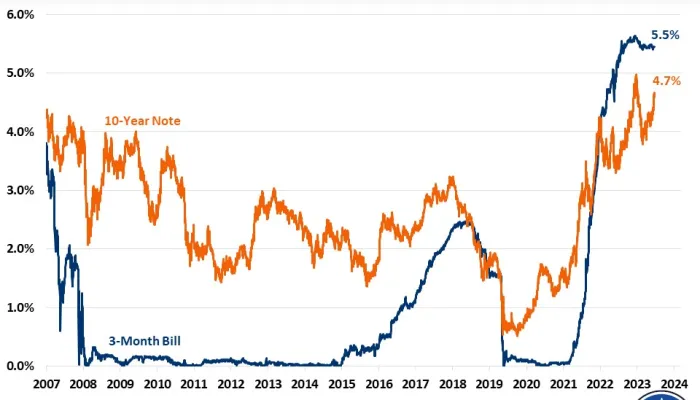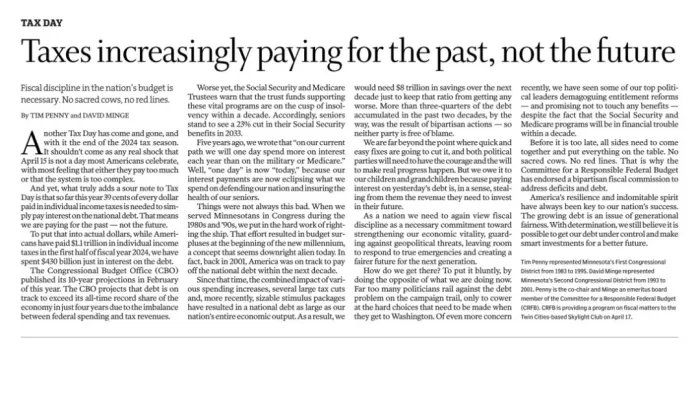Goldman Sachs Warns that the US Fiscal Outlook is “Not Good”
In a report released last month by Goldman Sachs, Chief Economist Jan Hatzius describes the U.S. fiscal outlook as “not good.” If left unchanged, the fiscal outlook is likely to carry significant negative consequences.
Goldman's fiscal projections show the deficit will rise to $2.05 trillion (7 percent of GDP) in 2028, and the federal debt will reach 105 percent of GDP that year. These numbers are higher than the Congressional Budget Office's current law projections, but very similar to CBO's Alternative Fiscal Scenario (AFS) that makes similar assumptions about current policies being extended.
The Goldman Sachs report highlights economic problems that can occur if lawmakers do not reduce the debt's growth as a share of the economy.

The report discusses three possible outcomes that could cause debt to grow even more than projected: if Congress enacts additional tax cuts or spending increases, if interest rates increase much faster than economic growth, and a possible recession. Even if Congress enacted a deficit reduction package equal in size to those enacted in the early 1990s, debt would still climb to 95 percent of GDP by 2028, near CBO's baseline estimates.
The report warns of three consequences of rising debt, even before the U.S. faces any risk about not being able to borrow or repay:
First, the U.S. is moving closer to running out of fiscal space, the limit on debt implied by the historical record, which could lead to a muted policy response to the next downturn. In other words, "lawmakers might hesitate to approve fiscal stimulus in the next downturn in light of the already substantial budget deficit." When debt and deficits are high, policymakers may face political or economic obstacles to increasing deficits to fight a recession.
Second, even if lawmakers would not hesitate to provide stimulus during a downturn, the push to stabilize debt after the next recession ends could slow the subsequent recovery. This dynamic occurred to some extent following the Great Recession: some lawmakers pushed for immediate spending cuts that were eventually reversed, though they should have put in place more gradual, lasting, and longer-term deficit reduction.
Finally, growing debt and deficits are likely to put upward pressure on interest rates, which would then further increase deficits. Interest spending is already expected to grow significantly, and higher interest rates would make that trend worse. Goldman Sachs estimates that a 1 percentage point increase in the budget deficit as a share of GDP raises the 10-year Treasury yield by roughly 0.2 percentage points. As the report notes, this suggests the increase in the deficit over the next decade would raise the ten-year yield by about 0.7 percentage points.
Economists at Goldman Sachs have highlighted the economic risks posed by the growing debt and deficit. If lawmakers do not wish to find themselves constrained in the face of the next recession, they need to get to work on stabilizing the national debt, and ideally, shrinking it as a share of the economy.


